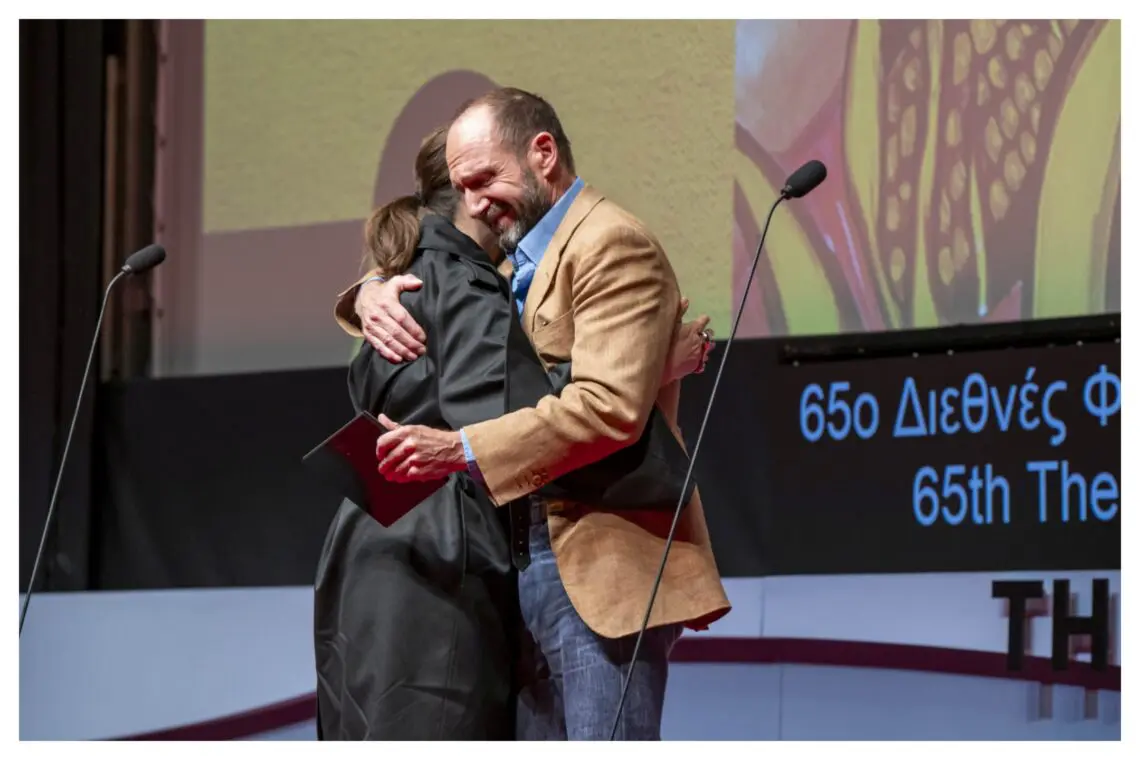A journey back to ancient Greece: The emotional return of ‘The return’
Juliette Binoche and Ralph Fiennes reunite for a passionate retelling of Homer’s “Odyssey”
The emotional gravity of ’The return’
Revisiting Greece with the historical drama The Return has been an emotionally charged journey for Juliette Binoche, Ralph Fiennes, and director-producer Uberto Pasolini. At the Thessaloniki Film Festival, Binoche shared, with tears in her eyes, “Meeting this dream, this need inside Uberto and his passion for the story… We were really moved.”
Reflecting on the profound experience, Binoche added, ”It was moving because that is what you wish for as an actor. We know how difficult it is to get a film made. When Pasolini took home the hard drives to complete this wish, it felt like we were okay. We’re okay.”
The making of ‘The return’
Based on Homer’s ancient Greek poem Odyssey, The Return signifies a lifelong project for Pasolini, best known for directing Still Life and Nowhere Special, and as the Oscar-nominated producer of The Full Monty. In this epic film, Fiennes portrays Odysseus, who washes up on the shores of Ithaca after 20 years of battling in the Trojan War. Binoche plays Penelope, Odysseus’ wife, who spent those two decades defending their family legacy and is now a prisoner in her own home.
Honoring a legacy
At the Thessaloniki Film Festival, both Juliette Binoche and Ralph Fiennes received the Golden Alexander award in recognition of their illustrious careers. This accolade also marked a significant screening of The English Patient, further solidifying their extraordinary on-screen partnership.
“Working with Juliette and Ralph, most of the time you say action and you just watch because it is extraordinary. They give you something more complex than you could ever dream of,” Pasolini stated. His admiration for the actors echoed throughout the festival as he emphasized the profound impact of their performances.
A reunion after almost three decades
Binoche referred to their reunion 28 years after the Oscar-winning The English Patient as “destiny.” She shared, “Sharing the story with Ralph was very special because we’ve known each other for many years. We are probably at an age where you see that it could be our last film.”
Fiennes echoed this sentiment, “We’ve stayed very good friends throughout the years and felt this was the right thing. As [Juliette] said, it was destiny. It felt so right that we would come together in this tale of a man and woman reuniting.”
A contemporary Penelope
When asked about portraying Penelope in a modern context, Binoche described her character as “a very modern woman even though she is an archetype.” She emphasized Penelope’s journey and patience, paralleling it to the current societal dynamics. “The patience that the woman had for him to come back is huge. If we can make a parallel with what is happening in the world right now, the feminine side of ourselves has to wish that this need to conquer will change, will transform.”
Binoche continued, ”You can read the story on so many levels. This is why this film is modern even though it is a classic. Even more modern today than it was at the time.”
The parallel between arthouse and commercial films
An audience member at the festival drew a parallel between Penelope’s story and the struggle of arthouse films facing commercial pressures. To this, Fiennes responded, “We get quite trapped in these labels of arthouse versus commercial. This seems to me like an old language. I hope the younger generation of filmmakers don’t fall into this binary trap.”
He further elaborated, “I hope up-and-coming filmmakers create an infrastructure and a way of talking with audiences that allows arthouse films and commercial films to coexist. It would be great to break this barrier.”
Pasolini supported this view and commented on the role of streaming platforms. “Streamers are helping expose films that have not received theatrical distribution in certain countries. Perhaps Mubi is more interested in a particular cinema than Netflix, but I think they are helping, while still believing cinema should be watched on a big screen among other people.”
The powerful energy of Greece
Returning to Greece, part of the film’s shooting location, left a lasting impression on Fiennes. “Ithaca is a very powerful place, and Greece is an extraordinary country. There is some energy or power that I identify in its islands, its seascape, and mountains. I feel the same on the West Coast of Ireland. It is very powerful to feel these spirits.”
Experience the profound emotions and timeless storytelling by watching the trailer of The Return. Stay updated with the latest in cinema and join our community for more insights and exclusive content.
Share your thoughts
Dive into the discussion around The Return by sharing this article on social media. Your engagement helps us bring you more in-depth stories and analyses from the world of film and culture.

 Italian
Italian







